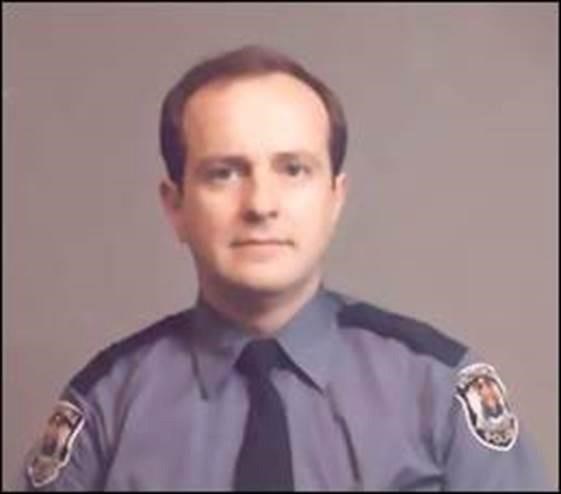Despite the traumatic brain injury that left Victoria police officer Const. Ian Jordan in a vegetative state for 30 years, his wife said she could see flickers of life in his eyes when she talked about their son and when music played.
Hilary Jordan said while she’ll never know her husband’s level of awareness after an on-duty car crash left him brain damaged, she hopes he was comforted by the fact someone was by his side nearly every day.
Jordan died on April 11, just over 30 years after his police cruiser was T-boned by another police car responding to the same call on Sept. 22, 1987. A police funeral will be held Thursday at 2 p.m. at Christ Church Cathedral.
Jordan was in a coma in the first few months after the crash and then went into an unresponsive state.
Unlike a patient in a coma who is completely unconscious and appears to be in a deep sleep, Jordan had sleep and wake cycles, he would open his eyes, breathe on his own, cough and sneeze, his wife said.
“When I spoke about [our son] Mark, often he would raise his eyebrows. He would look at me,” she said. Mark was 16 months old at the time of the crash.
Hilary Jordan said she constantly wondered whether her husband had locked-in syndrome, a rare neurological disorder in which the patient is conscious but cannot move or communicate verbally due to complete paralysis. The condition was profiled in the movie The Diving Bell and the Butterfly, based on the memoir by French journalist Jean-Dominique Bauby.
“All the time I wondered,” Hilary Jordan said. “I wasn’t sure if that was a good thing or not. Whether it would be better to know what was going on or to be oblivious.”
Sometimes Jordan would squeeze his wife’s hand, but she didn’t know if it was voluntary or a reflex.
Jordan responded well to the musical therapist who would sing to him, his wife said. Hilary Jordan said it’s difficult being left with unanswered questions but she’s confident her husband received the best medical care.
“The brain is so complex. We’ve come so far with so many medical issues, but the brain is still a dark area with injuries such as this,” she said.
Just how little we know about the awareness of a person in a vegetative state underscores the need for more research, said a British neuroscientist who has made breakthroughs in the field.
Dr. Adrian Owen, Canada Excellence Research Chair in Cognitive Neuroscience and Imaging at the Brain and Mind Institute at Western University, said about one in five patients thought to be in a vegetative or unresponsive state actually have some level of awareness.
Owen, formerly with the University of Cambridge, discovered 20 years ago that the brain scans of a patient who appeared to be in a vegetative state showed she responded to photos of people she knew.
In 2010, using brain-scanning technology called a functional magnetic resonance imaging, Owen and researchers at the University of Liège in Belgium proved communication with someone thought to be unresponsive.
Owen calls this foggy state between consciousness and unconsciousness the gray zone, which he details in a book called Into The Gray Zone: A Neuroscientist Explores the Border Between Life and Death.
“For many, many years there has been very little we can do to help these patients,” Owen told the Times Colonist. “The problem is, in some instances, that means they don’t get seen regularly by an experienced neurologist who might be able to detect signs of change or some improvements.”
A vegetative state can last decades or, in more rare cases, someone can improve over time, Owen said.
While the emotional state of a patient’s family can sometimes clash with a more pragmatic assessment from doctors, they can also compliment each other, Owen said. He points to his experience with the father of an Alberta man, in a vegetative state for 17 years, who would take his son to the movies every week.
Owen asked the father why and he responded: “I just know when my son enjoys a movie and doesn’t enjoy a movie.”
Owen initially thought that impossible, but he brought the patient to London, Ont., for scans. He watched the man’s brain as an Alfred Hitchcock movie played.
“We could see that he was watching the movie, was understanding the movie much the same as you and I would. His brain was responding to every twist and turn in the plot even though the patient had been seen over and over again and had been clinically diagnosed as unresponsive,” Owen said.
While therapies and other forms of rehab are commonly used, Owen said, there is no clinical evidence that any of these techniques will lead to improvements for someone who is unresponsive.
“That just underscores why it’s really important that we continue to do research on this population of patients. We continue to try and understand exactly what’s going on for them and what are the things we can do to pull them out of this situation.”



